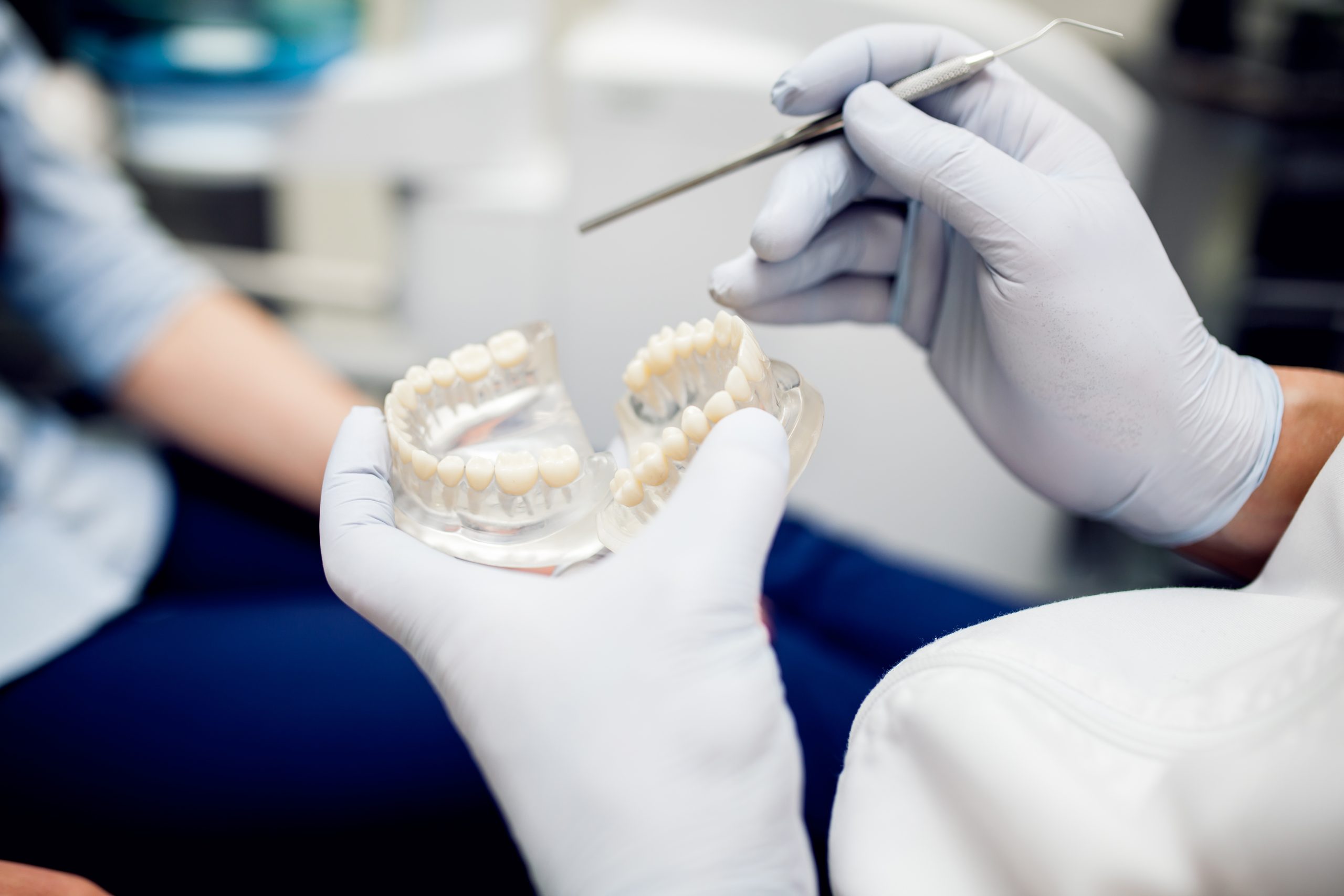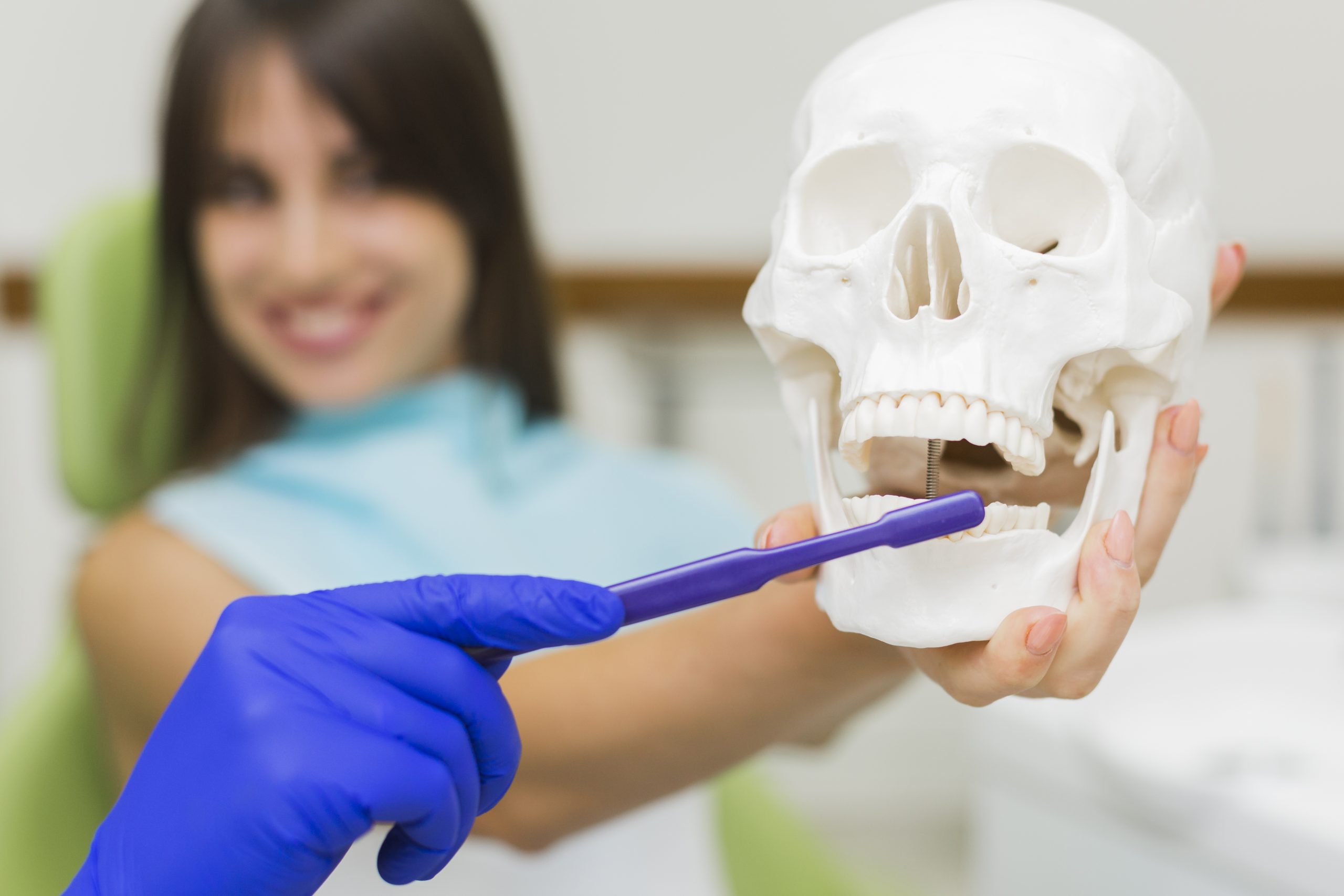Losing teeth can be a confronting experience. It may affect how you eat, speak, and interact with others. For many patients, this change brings both practical and emotional challenges. Fortunately, dentures are a widely used option that can help restore the appearance and function of your natural teeth.
This guide will take you through the step-by-step process for dentures, with each stage explained in a clear and supportive way. From the initial consultation to the final fitting, you’ll learn how dentures are made, how they relate to your oral health, and the different types available. Whether you’re missing a few teeth or all the teeth, this resource will help you explore options such as partial dentures, complete dentures, or implant-supported dentures, so you know what to expect at each stage.
Contents Navigation
Summary of The Content
- Losing teeth can affect daily life, and dentures remain a trusted way to restore appearance and function.
- Dentures are removable appliances made to replace missing teeth and support oral health. They are designed to improve chewing, speech, and appearance.
- Types of dentures include complete dentures, partial dentures, and implant-supported dentures, each suited to different needs.
- The step-by-step process for dentures begins with an initial consultation and may include tooth extractions, a healing stage, and temporary dentures.
- Final dentures are fitted after impressions, bite registrations, and try-ins, with adjustments to support comfort and appearance.
- The process often takes six to twelve weeks, though it may extend when healing is slower or implants are used.
- Adjusting to new dentures can involve mild discomfort, changes in speaking and chewing, and increased saliva, usually improving within weeks.
- Daily cleaning, safe storage, oral hygiene, and regular checkups help maintain dentures and protect overall oral health.
Dentures and Tooth Loss
Losing teeth can affect not only your ability to chew properly but also the way you speak and the overall balance of your facial structure. If you have experienced tooth loss, whether from gum disease, tooth decay, or injury, your dentist may recommend dentures as a way to support function and improve appearance.
Dentures are removable appliances designed to replace missing teeth. They rest on the gum tissue and are shaped to fit the natural contours of your oral cavity. Depending on how many teeth are missing, you may be suited to partial dentures, complete dentures, or implant-supported dentures.
Modern dentures are made with advanced materials and are shaped to resemble natural teeth. Many patients may be surprised by how natural and discreet today’s dentures can look. With the right fit and proper care, they can also feel more stable and comfortable than older models.
Exploring the Types of Dentures Available
Not all dentures are the same. The type recommended will depend on how many teeth are missing, your oral health condition, and your denture needs. The three most common types available are complete dentures, partial dentures, and implant-supported dentures.
Complete Dentures for Full Tooth Loss
Complete dentures are used when all the teeth in the upper or lower jaw are missing. They are designed to replace missing teeth and help support the natural shape of the facial structure. A dental technician fabricates them using dental impressions, so the finished dentures resemble natural teeth and support function for eating and speaking more comfortably.
Partial Dentures for Gaps in the Smile
Partial dentures are recommended when only a few teeth are missing. They are designed to fit around the remaining teeth, using metal clasps or specialised attachments to provide stability. This type of denture can help support the alignment of healthy teeth and assist with normal chewing ability. It may also reduce the likelihood of nearby teeth shifting into empty spaces.
Implant-Supported Dentures for Extra Stability
Implant-supported dentures combine dental implants with a removable denture to improve stability. The implants act as anchors within the jawbone, helping the denture feel more secure compared with traditional dentures. This option may be considered for people looking for improved comfort and stability when chewing or speaking. With proper care and maintenance, this type of denture may provide function over an extended period.
Step-by-Step Journey to Getting Dentures
The step-by-step process for dentures is planned according to each person’s denture needs. While the timeline can vary depending on oral health and treatment choices, most patients can expect a series of stages. These progress from the first consultation through to receiving final dentures, followed by ongoing care.
Step 1: Initial Dental Consultation
The process begins with your first consultation, where the dentist reviews your dental history and examines your oral cavity. During this appointment, they also assess any existing teeth and check for concerns such as gum disease or tooth decay. Once the assessment is complete, treatment options, such as complete dentures, partial dentures, or implant-supported dentures, are discussed. A treatment plan is then created to reflect your specific dental needs and circumstances.
Step 2: Tooth Removal (If Required)
In some cases, tooth extractions may be necessary if teeth cannot be restored due to damage or disease. Removing unrestorable teeth may provide a healthier foundation for new dentures. After tooth removal, the gum tissue and jawbone need time to heal, allowing the mouth to recover and prepare for the next stage of the denture process.
Step 3: Healing and Temporary Dentures
The healing stage usually takes six to eight weeks. In some cases, it may extend to three months or longer, depending on how many teeth are extracted and how the mouth responds. During this time, immediate dentures or temporary false teeth may be provided. These help support your appearance and allow you to chew properly while the oral tissues recover. This stage also gives you time to adapt gradually before receiving your final dentures.
Step 4: Fitting the Final Dentures
When the gum tissue has healed, detailed dental impressions are taken. A dental technician uses these, along with bite registrations and jaw measurements, to create a trial denture. Multiple try-ins allow adjustments to be made so that the finished dentures resemble natural teeth and are adjusted to achieve a comfortable fit within the upper and lower jaws. This stage focuses on comfort, function, and appearance, so the final dentures support both everyday use and a natural look.
Step 5: Follow-Up Adjustments and Care
When the gum tissue has healed, detailed dental impressions are taken. A dental technician uses these, along with bite registrations and jaw measurements, to create a trial denture. Multiple try-ins allow adjustments so that the finished dentures resemble natural teeth and are adjusted to provide a comfortable fit within the upper and lower jaws. This stage focuses on comfort, function, and appearance, so the final dentures support daily activities such as eating and speaking while also providing a natural appearance.
How Long Does the Denture Process Take?
The denture process can vary from person to person. In many cases, the timeline is often between six and twelve weeks. The length of treatment depends on factors such as how many teeth are extracted, the condition of the gum tissue, and how quickly the mouth heals.
The timeline may extend when several tooth extractions are required. Healing may also take longer if the gum tissue or jawbone needs extra recovery time. The process can be lengthened if implant-supported dentures are part of the treatment plan or if additional visits are required for trial dentures and adjustments.
Some people may need additional appointments for trial dentures and minor adjustments, or to discuss the different types of dentures available, such as complete dentures, partial dentures, or implant-supported dentures. Because every situation is different, the treatment plan is planned according to your needs and may involve more or fewer steps.
What to Expect When Wearing New Dentures
Wearing new dentures is an adjustment process. During the first weeks, it is normal to notice changes in how your mouth feels and functions. These changes usually improve as your oral tissues, facial muscles, and tongue adapt. Here are common experiences you may notice:
- Mild Discomfort (First 2–4 Weeks):
Some patients experience pressure or sore spots as the gum tissue adjusts to the dentures. This is common during the first two to four weeks. Follow-up visits allow for minor adjustments so the dentures fit more comfortably. - Eating Adjustments (First 3–8 Weeks):
Chewing may feel different at first. It often helps to begin with soft foods such as mashed potatoes, yoghurt, or scrambled eggs in the first week. By weeks three to four, foods like pasta, steamed vegetables, or fish can be introduced. Harder foods, such as apples or steak, may take eight weeks or longer to manage comfortably. Cutting food into smaller pieces and chewing slowly on both sides of the mouth can improve stability. - Speaking Changes (First 2–6 Weeks):
Speaking with new dentures can feel unusual, especially with certain words. Reading aloud or repeating phrases can help train the tongue and facial muscles. Noticeable improvement often occurs within two to six weeks, although full adjustment may continue for up to three months. - Increased Saliva (First 1–2 Weeks):
Wearing dentures daily often stimulates extra saliva during the first week. The amount of saliva usually decreases within one to two weeks as the mouth adjusts. Sipping water and swallowing more frequently can help manage the feeling. - Adaptation Over Time (Up to 3 Months):
Most people adapt within two to three months. Ongoing regular checkups and proper denture care help support long-term comfort and function.
Caring for Your Dentures and Oral Health
Looking after your dentures and maintaining good oral health are essential for comfort and long-term function. Proper cleaning, handling, and storage also help protect the gum tissue and support the health of any remaining natural teeth. Here are some important care tips:
- Daily Cleaning:
Brush your dentures daily with a soft brush and non-abrasive denture cleanser. This removes food particles and plaque. Rinse thoroughly with water after meals. - Handling with Care:
Hold your dentures over a sink filled with water or a soft towel in case they slip. This lowers the chance of damage if dropped. - Storing Overnight:
Remove dentures overnight and keep them in water or a denture-soaking mixture. This keeps the dentures in good shape and allows the gum tissue to rest. - Maintaining Oral Hygiene:
Clean your mouth, tongue, and any remaining teeth with a soft brush twice daily. This reduces the risk of gum disease or tooth decay. - Regular Checkups:
Visit your dentist regularly to review the fit and condition of your dentures. Adjustments or relines may be needed over time to support a comfortable fit. - Avoiding Damage:
Do not use hot water, bleach, or abrasive cleaners, as these can damage the denture materials.
Final Thoughts
Adjusting to dentures is a journey that takes time, patience, and the right support. Every stage, from the first consultation through to the final fitting, is intended to support both function and confidence in daily life.
At Karrinyup Dental Centre, our team will guide you through the step-by-step process for dentures, answering your questions and helping you understand each stage of care. With ongoing support, regular visits, and proper denture care, you can move forward with support focused on your comfort and oral health.





